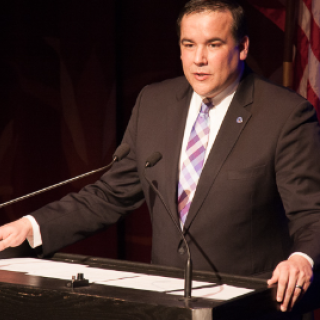Advertisement
Reprinted with new introduction for the elementary literacy education of the Ohio State Legislature, February 2024
As a historian of literacy, I published this critique of so-called “financial literacy” on January 23, 2022. There is no such subject or object as “financial literacy.” There is reading, writing, and arithmetic together brought together to understand economic matters within specific historical, social, political, and cultural contexts. “Financial literacy,” as I made clear below, is a false product sold by marketers and bought by state legislatures like Ohio’s.
It almost certainly does little good especially for high schools. It is divorced from the study and teaching of history, economics, politics, and arithmetic itself. It is orthodox right-wing ideology, not a “life style” or “preparation” for work. It is the sold and bought and product of fears of decline.
Is it a contradiction that just as elementary school reading scores continue to decline and a periodic “reading war” between promoted forms of phonics and phonetics wages, that the Ohio Legislature takes more limited school time away and teaching resources away from the genuine basics to require instruction not only in false “financial literacy” but now undefined “capitalism”? Or it “Capitalism”?
Don’t ask anyone in the State House or any Ohio government office from the Department of Education and Workforce Development to the now powerless and purposeless State Board of Education.
Along with last year’s “reading wars” shift to the falsely promoted, non-scientific “science of reading,” the push for both “financial literacy” and teaching the undefined “principles of capitalism” demonstrates the complete absence of any degree of economic—or any other--understanding in the legislature and its handlers.
Not only does this thoughtless move reflect a lack of understanding of schools but it also accompanies a radical shift in spending public resources from the public to the private sector through unconstitutional voucher programs. (See, for example, Jessie Balmert, “Vouchers surge with change in Ohio laws,” Columbus Dispatch, Feb. 8, 2024)
So: lower skills, less time in classes, and fewer resources. Let’s “lessons about capitalism,” not to history and economics classes but to “financial literacy” courses. Simple addition and subtraction any one? No, not in O-H-I-O.
But what lessons? What principles?
Do we teach Adam Smith? Or Thomas Paine? Karl Marx? Fredrick Engels? Antonio Gramsci? John Maynard Keynes? John Kenneth Galbraith? Milton Friedman? Paul Krugman? Thomas Piketty? Has anyone in the legislature heard of any of them, let alone read them?
Do we teach the inextricable relationships of capitalism historically with serfdom, colonialism, environmental destruction, warfare, slavery, and inequality? The ceaseless cycles of boom and bust? The rising levels of inequality and stratification over time?
Or the real American “exceptionalism,” from the political economy of slavery, and both Black’s and women’s rights? Differential mortality among other opportunities? Unique among western capitalist nations, however rich or powerful, the refusal to establish a meaningful social security, especially public health systems?
These are the “values” of the American “free market system.” Fundamentally, its markets have never been free to all. Where do they stand among the proposed 10 to almost 30 “principals”?
Democrats hand-wringing and whining about classroom time, as usual, misses the point.
-------------------------------------
January, 2022 original essay
A public relations and marketing campaign called FL4ALL announced itself in a full-page ad in the New York Times on August 3, 2021. It represents a dangerous fiction and threat to students and unsuspecting “hard working citizens,” to repeat its promotional language. The campaign’s actions follow what I declared in my 1979 book, The Literacy Myth, the exaggerated importance of literacy by itself, taken out of context. To borrow terms from the field of literacy studies, “reading” the advertisement as “written” is revealing.
Let’s look at the text. It misrepresents both literacy and economics, and is a danger to the population this corporate coalition claims to serve.
First, no reputable person says or writes “FL” for “financial literacy.” Perhaps for a football league. Second, only marketers and business corporations seeking to derive financial profits would consider promoting a flawed slogan like “FL4ALL.” In corrupting well-established public civil rights movements, such sloganeering is a shameful misappropriation. The ad proclaims that “financial literacy is a civil rights issue of this generation.” “Civil rights” is a complicated and contested term. This kind of imitation is unacceptable. It is offensive to genuine civil rights activists and the public. Could FL4ALL not afford a responsible advertising agency?
Third, the poorly constructed and misleading wording asserts that “you can grow the economy by expanding the ladder of opportunity.” Do they really mean making the “ladder of opportunity” longer? Fourth, the “mission statement” ends with, “We believe in embedding financial literacy into the business plan of America.” Here we have the most forthright statement in the ad. The fundamental goal of the 10-year project is “the business of plan of America,” though no business plan appears on their website. The founding organizations comprise eight corporations, the NBA, and the NFL, with an online “education academy” the only representative of any kind of formal education.
The PR campaign continues by committing “ourselves and our corporations to addressing one of America’s greatest challenges: the lack of knowledge and understanding of how money—and everything that revolves around it—works.” Is this what they mean by “financial literacy”? Once again, the writing is uncertain; “American’s greatest challenges” are distorted; the sales pitch is awkward. In the next paragraph, FL4ALL confuses “financial stress”; the “costs” of financial illiteracy; and “most Americans’” lack of funds for emergencies. The “call to action” and “time to act” become more muddled by the paragraph.
Among the many problems is that “financial literacy” is never defined by FL4ALL. It is at best a rhetorical metaphor and at worst a fiction or myth. In the hands of this campaign, it is an undisguised pitch designed to sell FL4ALL as a product and lead, however indirectly, to profits. The promotion applies most directly to co-sponsor Khan Academy but also to Bank of America, Walmart, Delta Airlines, Disney, PayPal, and other “founding organizations” and their “partners” BlackRock, iHeart Radio, Mastercard, U.S. Bank, Nextdoor, and others.
As an internationally recognized historian of literacy, I argue that we must define literacy clearly. Literacy is a form of reading, writing, and in some instances arithmetic, based on a common set of recognized symbols, including major alphabets and numeral systems. The ceaseless proliferation of “many literacies” since the 1970s allows anything imaginable to declare itself a “literacy.” This multiplication ranges from “sports literacies” to “automobile literacy” and “dog or cat literacy,” with “financial literacy” in between. Together, it threatens to destroy any agreed-upon definition of literacy, especially in education.
It is critical to start with the basics and then qualify the term “literacy” when appropriate with an adjective. Otherwise conceptualization, shared knowledge, and communication are impossible. Isolation and distortion follow. These aspirational “literacies” have sales or related appeal among their proponents. The extent to which they have a meaningful appeal remains unclear and untested.
The unmistakable result is general confusion. FL4ALL contributes significantly to that. We must join together to work for clarification and common knowledge, and combat distortion and misappropriation for marketing purposes.
References by Harvey J. Graff
“The new literacy studies and the resurgent literacy myth,” Literacy in Composition Studies, 9, 1 (2022), 47-53
“The Misrepresentation and Marketing of ‘Financial Literacy’: The Fallacies and Dangers of FL4ALL,” Busting Myths, Columbus Free Press, Jan. 23, 2022
Searching for Literacy: The Social and Intellectual Origins of Literacy Studies, Social Science Matters #SocSciMatters [https://www.palgrave.com/gp/blogs/social-sciences/graff]
“Searching for Literacy,” Cleveland Plain Dealer/Cleveland.com, Sept. 2, 2022
“Searching for Literacy: The Social and Intellectual Origins of Literacy Studies,” Columbus Free Press, Sept. 5, 2022
“The ridiculous proliferation of subject ‘literacies’ is harming education,” Times Higher Education, Oct. 3, 2022
“‘The evidence is NOT clear; The jury is NOT in’: Why politicians can never dictate
educational programs & policies,” Busting Myths, Columbus Free Press, Feb. 28, 2023
“The persistent ‘reading myth’ and the ‘crisis of the humanities,’” CCC/College Composition and Communication, 74, 2 (Feb. 2023). 575-580
“The Young Heroes of the Writing World: A new wave of very young authors is trying to
change the world,” Publishers Weekly, June 16 online, June 19, 2023 in print
“Mike DeWine, ignorant slogans, and the non-‘science of reading’: The Ohio Way,” Busting
Myths, Columbus Free Press, June 30, 2023
“How can you recover reading when there was none? A revealing case study of academic
dishonesty, capitalizing education, institutional and collegial collusion, and damage
to children: The Ohio State University and Heinemann Publishing’s Fountas and Pinnell aka Reading Recovery, Part One,” Busting Myths, Columbus Free Press, July 12, 2023
“The Ohio State University and Heinemann Publishing’s Fountas and Pinnell aka Reading
Recovery, Part Two,” Busting Myths, Columbus Free Press, July 17, 2023
“How can you recover reading when there was none? A revealing case study of academic
dishonesty, capitalizing education, institutional and collegial collusion, and damage
to children: The Ohio State University and Heinemann Publishing’s Fountas and Pinnell aka Reading Recovery, Part Three,” Busting Myths, Columbus Free Press, July 21, 2023
------------------------------------------------
Harvey J. Graff is Professor Emeritus of English and History, inaugural Ohio Eminent Scholar in Literacy Studies, and Academy Professor, Ohio State University. Author of many books on literacy, children and youth, cities, and interdisciplinarity, most recently he published Searching for Literacy: The Social and Intellectual Origins of Literacy Studies (2022). My Life with Literacy: The Continuing Education of a Historian. The Intersections of the Personal, the Political, the Academic, and Place is forthcoming. “Reconstructing the new ‘uni-versity’ from the ashes of the ‘multi- and mega-versity’” is in progress. He is also editing Changing Paths of Academic Lives: Revising How We Understand Higher Education/Universities, 1960s to 2020s and Beyond, a collection of original first-person essays.


